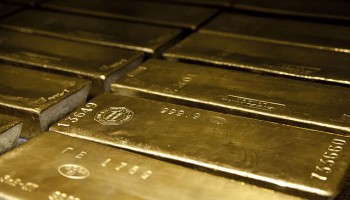Included in a fresh wave of sanctions against Russia, the U.S. Department of the Treasury blacklisted Tuesday all Russian gold imports into the United States, with immediate effect.
This decision resulted from a G7 summit in the Bavarian Alps last weekend, where Canada, the U.S., France, Italy, Germany, the U.K., and Japan addressed global energy supply and inflation concerns, while keeping in mind how Russia’s invasion of Ukraine must be met with a unified response.
It is the coalition’s hope that this collective ban will remove tens of billions of dollars in trade from Russia’s war chest, in a conflict that has persisted far longer than Putin originally intended.
Shortly after the summit, Canada’s Office of the Prime Minister announced its own intent to impose a gold ban on Russia.
Gold is widely viewed as a safe-haven asset and a hedge against inflation, since it consistently retains its value during times of economic strife. The ban will thus further isolate Russia from the international financial system at a time when global inflation rates continue to rise.
“Vladimir Putin and his regime have caused untold pain and suffering in Ukraine and across the world,” Canadian Prime Minister Justin Trudeau said. “Together, with our G7 counterparts, Canada is stepping up our continuous and coordinated pressure to bring about the end of Vladimir Putin’s war of choice.”
The British government also issued a press statement following the announcement of the ban. In it, the prime minister’s office said that the Russian economy will no longer benefit from gold exports, which stood at £12.6 billion (US$15.5 billion) last year.
“We need to starve the Putin regime of its funding,” Prime Minister Boris Johnson said. “The U.K. and our allies are doing just that.”
Johnson went on to deliver a personal jab at Putin, saying that the Russian president is “squandering his dwindling resources on this pointless and barbaric war” and that the conflict serves no purpose other than to bankroll his ego at the expense of both the Ukrainian and Russian people.
Gold is Russia’s second most valuable export after energy. Earlier this year, the country was noted to have roughly $130 billion in gold reserves, which it began stockpiling in 2014 shortly after its annexation of Crimea.
Markets Insider reports currently show gold down 0.2 percent at 1,815.88 per troy ounce.
Back in late March, Biden signed an executive order that barred all transactions with the Russian central bank’s gold reserves. The G7 announcement follows suit with the strength of the coalition at its back rather than just one nation.






